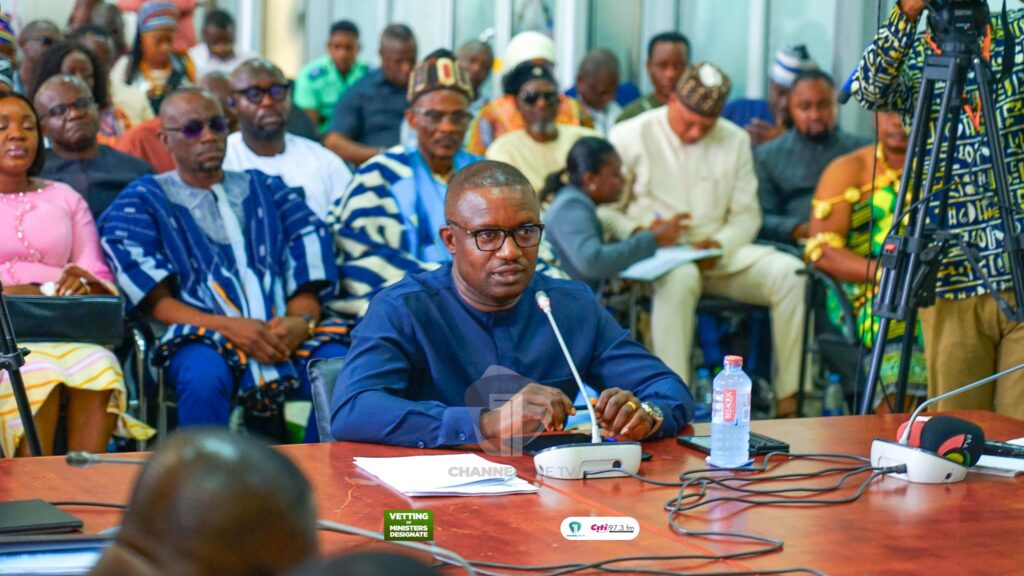Energy Minister-Designate Announces 6-Month Timeline for ECG Private Sector Involvement Framework

Energy Minister-designate, John Abdulai Jinapor, has outlined an ambitious six-month timeline for establishing a comprehensive framework aimed at increasing private sector participation in the operations of the Electricity Company of Ghana (ECG). The initiative is designed to enhance the efficiency and performance of ECG, addressing longstanding issues in the country’s power distribution system.
In his vetting before Parliament’s Appointments Committee on Monday, January 13, 2025, Mr. Jinapor stressed the importance of transparency, expert contributions, and inclusive planning in the development of the framework. He underscored the need for a collaborative approach, stating, “We believe private sector participation is crucial. Our intention is to form a seven-member committee that includes technical experts, legal professionals, financial analysts, industry stakeholders, and even a consumer representative.”
The committee will be responsible for reviewing international best practices to determine the most appropriate model for ECG’s future operations. This will involve evaluating whether a concession model, which grants operational control to a private entity for a set period, or full privatization of the company would be more beneficial for improving the company’s performance. Mr. Jinapor emphasized that the government would avoid political interference, with the process guided by transparency and fairness. “My goal is to complete this framework within six months, but I don’t want to rush the committee’s work. However, I believe that by the end of the year, we should have a comprehensive framework in place,” he explained.
A key feature of the proposed plan is the government’s commitment to a competitive tender process, ensuring that no sole-sourcing will take place. Mr. Jinapor assured the committee that the initiative would prioritize local content, with a strong focus on creating opportunities for local businesses and professionals. Additionally, Key Performance Indicators (KPIs) will be incorporated to ensure accountability throughout the process. “Once we have the support of Ghanaians, we can move forward with a Request for Proposal (RFP) or competitive tender process. This strategy will bring in private sector expertise while protecting national interests,” he stated.
Mr. Jinapor also addressed the broader financial challenges in the energy sector. He revealed that the sector’s debt has ballooned to $3 billion, underscoring the urgent need for reforms to stabilize the industry and ensure its long-term sustainability. Drawing from past experiences with concessions, he expressed his commitment to using the lessons learned to guide the new framework and avoid previous pitfalls. “The energy sector’s debt is a major challenge, and we need to address it urgently. The lessons from previous concessions will inform how we approach this new initiative. Reform is essential to ensure the sector is not only financially stable but also capable of meeting the growing demands of the country,” he noted.
The framework’s development will be informed by global best practices and tailored to Ghana’s unique energy landscape. The committee, as envisioned by Mr. Jinapor, will seek advice from a diverse group of stakeholders to ensure that the new model is both effective and sustainable. The committee’s efforts will focus on creating a system that attracts private investment and expertise, while also ensuring that the core interests of Ghanaians are protected.
The proposed framework for private sector involvement is seen as a critical step towards addressing inefficiencies in ECG’s operations, which have been a longstanding concern. By leveraging private sector expertise, the government aims to modernize the utility, improve power distribution, and enhance service delivery to consumers across the country.
In summary, Mr. Jinapor’s commitment to the six-month timeline for developing the ECG private sector involvement framework reflects his determination to tackle the challenges facing the energy sector. By prioritizing transparency, expert contributions, and a competitive tender process, he hopes to bring about meaningful reforms that will improve the overall efficiency and financial stability of the energy sector in Ghana. The plan also highlights the importance of addressing the sector’s mounting debt and ensuring the sustainable growth of the country’s energy infrastructure.







